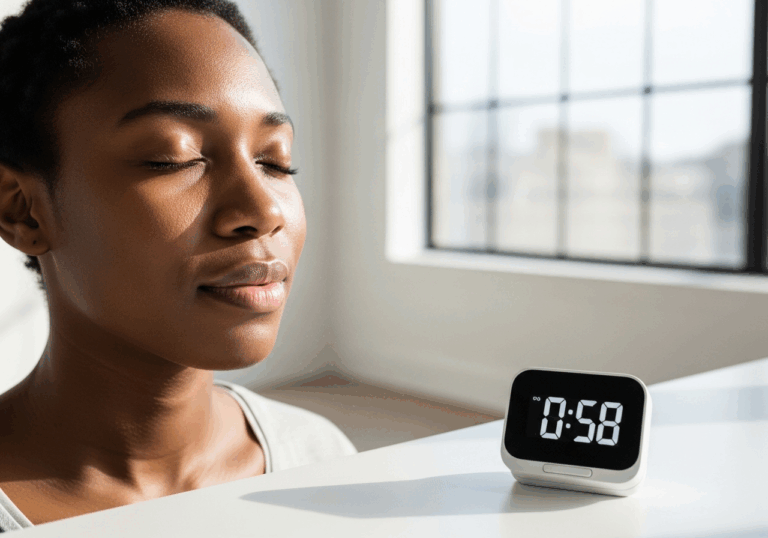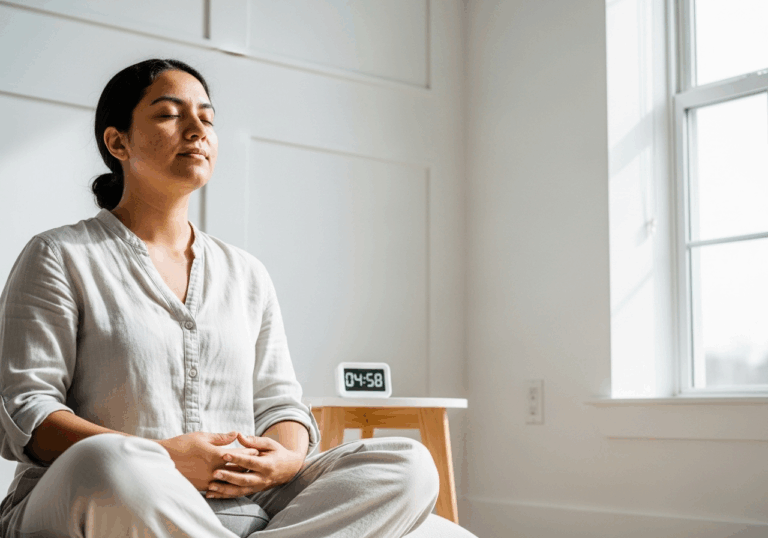Science-Backed Tips
Breathe Deeply for Better Mood Resilience
Controlled deep breathing can enhance mood resilience by 30%.
📊 Did you know?
💡 Why It Matters
1️⃣
Structured breath training can lead to a 30% improvement in mood resilience, which is crucial for mental health.
2️⃣
Improving HRV through breath training may reduce stress-related health issues, potentially lowering healthcare costs associated with stress management.
3️⃣
Enhanced mood resilience can improve overall quality of life, leading to better productivity and social interactions.
✅ Try These Micro-Tips
🎯
Practice controlled deep breathing for at least 5 minutes daily.
🎯
Engage in guided breathing sessions 3 times a week to maximize benefits.
🎯
Incorporate breath training into therapy sessions for enhanced outcomes.
🎯
Use mobile apps for structured breathing exercises to maintain consistency.
📚 The study
Why does this matter? Structured breath training can lead to a remarkable 30% improvement in mood resilience, a crucial factor for maintaining mental health. Furthermore, enhancing heart rate variability (HRV) through these breathing techniques may help mitigate stress-related health issues, potentially reducing healthcare costs linked to stress management.
The implications are profound: improved mood resilience not only enhances overall quality of life but also fosters better productivity and social interactions. As we navigate the complexities of modern life, incorporating structured breath training into our routines could be a simple yet powerful tool for enhancing our mental well-being and resilience against stress.
❓ Frequently Asked Questions ❓
Learn more
What is controlled deep breathing?
Controlled deep breathing is a technique that involves consciously regulating your breath to promote relaxation and reduce stress. It typically requires focusing on slow, deep inhalations and exhalations for a set period of time.
How does controlled deep breathing improve mood resilience?
Controlled deep breathing can lead to a 30% improvement in mood resilience by enhancing heart rate variability (HRV). This improvement is crucial for mental health, especially in stressed individuals.
What is heart rate variability (HRV)?
Heart rate variability (HRV) refers to the variation in time intervals between heartbeats, which is an indicator of the autonomic nervous system’s regulation. Higher HRV is generally associated with better stress management and emotional resilience.
How long should I practice controlled deep breathing for maximum benefits?
To achieve maximum benefits, it is recommended to practice controlled deep breathing for at least 5 minutes daily. Engaging in this practice consistently can significantly enhance mood and reduce stress.
How often should I engage in guided breathing sessions?
It is advisable to engage in guided breathing sessions at least three times a week to maximize the benefits. Regular practice can lead to more effective stress and anxiety reduction.
Can breath training be incorporated into therapy sessions?
Yes, incorporating breath training into therapy sessions can enhance therapeutic outcomes. This structured approach can help clients manage stress and improve their overall mental health.
What role do mobile apps play in breath training?
Mobile apps can provide structured breathing exercises that help maintain consistency in practice. They often include guided sessions and reminders to encourage regular engagement.
What is the significance of interventions lasting 5 minutes or more?
Interventions lasting 5 minutes or more with human guidance have been shown to significantly reduce stress and anxiety. This duration allows for deeper relaxation and more effective emotional regulation.
How can improving HRV through breath training affect healthcare costs?
Improving HRV through breath training may reduce stress-related health issues, potentially lowering healthcare costs associated with stress management. This can lead to fewer medical interventions and improved overall health outcomes.
What are the overall benefits of structured breath training?
Structured breath training can enhance mood resilience, improve quality of life, and lead to better productivity and social interactions. These benefits contribute to a more balanced and fulfilling life.





